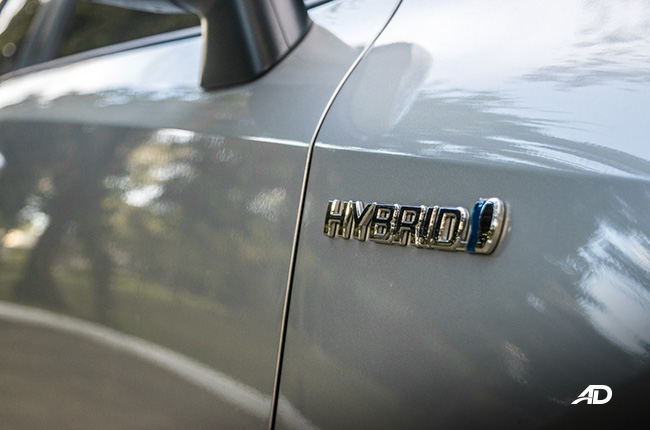
As if there weren’t enough things to think about when it comes to the maintenance of a car, here comes the hybrid revolution. Gasoline engines are already complex and hard to explain to most normal people, but Hybrid Electric Vehicles (HEVs) pose another challenge for consumers namely in terms of maintenance and longevity.
After rolling out of the dealership with your new ride, it’s usually a blissful experience because hybrid vehicles drive just like any other car but with stellar fuel economy. The manufacturer recommends users to follow the maintenance schedule, just like any other car as well, but unlike cars that get their propulsion solely via fossil fuels, hybrid vehicles have two energy sources to tap from, the other being electric power from batteries.
Since most of us know how to take care and maintain a gasoline or diesel motor, we’ll skip that half of the car. Let’s just focus on what’s new, the electric part of the hybrid system.
Follow your manufacturer’s maintenance schedule

More complexity breeds more maintenance, or at least that’s how the logic goes. Just like any gasoline or diesel motor, you need to follow the manufacturer’s recommended maintenance schedule. After all, the in-house mechanics know your car’s inner workings since they’re the ones who made it.
As long as you adhere to the schedule, you’re pretty much good, but what about those times in between service intervals? How should you treat your car?
Battery stress
Make sure that you’re not asking too much from your battery. You can push it from time to time, but just like anything, it is best to treat cars with mechanical sympathy. Don’t jerk the accelerator too much, as you can shorten the life of the battery in the system. Heat is what kills batteries, and drawing excess power from the cells will cause excessive wear and tear.
The best way to go around premature battery aging is by modulating your accelerator pedal. Don’t floor the throttle constantly in stop-and-go traffic. Feather it a little bit so as to draw just enough power to inch forward. Of course, when the accelerator is depressed, the motor turns on, but at its absolute maximum, the electric half of the system will kick in and give the engine a boost. The same goes for braking, there is a happy medium at which a battery isn’t too stressed when charging. It’s bad to draw power from the battery too quickly, and it is bad to charge batteries too quickly, so be as careful on the brakes as you are on the accelerator unless you really need to stop abruptly.
Extreme temperature is the enemy
Like what was stated earlier, excess heat is bad for the batteries. Charging too quickly or constant high power draws are some of the main culprits for premature battery deterioration. Ambient temperatures can also be a cause for concern, as excessive heat from the sun can damage cells, while cold can make batteries misbehave. The optimal temperature at which a hybrid’s battery can operate at is between 10-degrees and 40-degrees Celcius.
Store the car under shade if you can. Don’t keep it for long periods of time out exposed to the elements. During the hotter months, it would be advisable to put a car cover if you keep your car out in the open if you really want to take that extra step.
Drive it

By all means, drive it. Otherwise what good is the car you just bought? The inverse of pushing it too hard is not using it at all. Use it normally to keep the battery cells charged, and healthy. Over time, a battery will lose its charge, and in the case of lithim-ion batteries, having no charge is dangerous and detrimental to the health of cells like these.
However...
One doesn’t need to fret about most modern hybrids. There are securities and protections that allow these powertrains to work seamlessly and like a normal fuel-powered car. On the note of heat, the battery compartment is like a vault. It’s insulated from the elements, and also armored to avoid punctures, as well as a cooling system to regulate the temperature for the cells to perform optimally.
Manufacturers even state that you wouldn’t need to treat it any differently than a normal car. These are the same brands that state that the cells they installed into their vehicles will last throughout the unit’s life. It also helps that most hybrids, especially the pioneers, give consumers peace of mind through extended warranties. Instead of the usual 3-year deal, you get 5-years and double the accumulated distance coverage.

It’s just like any other car. Follow the brand’s recommendations and maintenance schedule, don’t drive a car hard, keep it away from extreme heat and cold, and love and cherish your new purchase. Nowadays, hybrids are pretty simple, and if major brands like Toyota are making big pushes to bring HEVs to the market, perhaps it is a sign of a new era for mobility, one that has less emission levels and fuel consumption.
Again, the car should do just fine under normal driving conditions, but a little care never hurt anyone.
Latest News
-
Suzuki Philippines celebrates its top professionals at the 2025 National Skills Competition / News
Suzuki Philippines shows top dealership talent as teams compete in the 2025 National Aftersales Skills Competition.
-
ACMobility, BCDA, and JHMC team up to power sustainable travel in Camp John Hay / News
ACMobility, BCDA, and JHMC partner to boost sustainable travel in Baguio with new EV charging hubs at Camp John Hay.
-
AITO's BGC Experience Center officially opens its doors / News
AITO officially opens its BGC Experience Center, offering buyers a new hub to shop for their next premium ride.
Popular Articles
-
Electric Vehicles in the Philippines for under P1 million
Jerome Tresvalles · Aug 19, 2025
-
Top 3 Cars For Every Lifestyle—What Cars Are Right For You? | Behind a Desk
Caco Tirona · Apr 24, 2024
-
5 Tips to Maximize Fuel Efficiency
Jerome Tresvalles · Sep 09, 2024
-
Five driving habits that are draining your fuel tank
Jerome Tresvalles · Jun 24, 2025
-
Can engine braking harm your engine?
Jerome Tresvalles · Sep 11, 2025
-
Do electric cars even need maintenance?
Jerome Tresvalles · Oct 23, 2024
-
Best vehicles for an active outdoor lifestyle
Shaynah Miranda · Jul 25, 2024
-
How to drive different types of vehicle transmissions
May 23, 2024
-
5 easy ways to keep your car interior clean
Allysa Mae Zulueta · Nov 15, 2021
-
How to survive Metro Manila traffic
Earl Lee · Aug 16, 2022




